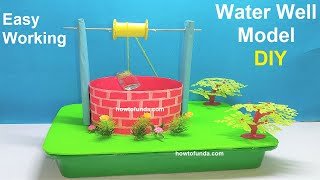Creating an eco-friendly school project is a great way to promote environmental awareness and sustainability.

Here are some eco-friendly materials and ideas you can consider for your project:
- Recycled Paper: Use recycled paper for posters, models, or written materials. You can create artwork or informational displays about environmental issues or sustainable practices.
- Cardboard: Cardboard can be used to construct models, dioramas, or structural elements. Create a miniature eco-friendly building, garden, or renewable energy system.
- Biodegradable Materials: Utilize biodegradable materials like cornstarch-based plastics or bioplastic to create objects that will naturally break down over time.
- Natural Fabrics: Choose organic cotton, hemp, or bamboo fabric to create clothing, accessories, or textile-based projects that emphasize sustainability.
- Reusable Containers: Incorporate reusable containers or bottles as part of your project display to showcase the importance of reducing single-use plastic.
- Upcycled Materials: Give new life to old items by upcycling them into something new. Create artwork from discarded materials or repurpose items into functional objects.
- Plant-Based Materials: Use materials like leaves, twigs, or other plant parts to create crafts, decorations, or natural sculptures.
- Solar-Powered Devices: Construct solar-powered gadgets or models to demonstrate the potential of renewable energy sources.
- Compostable Cutlery: If your project involves a food-related aspect, consider using compostable cutlery, plates, and cups to emphasize sustainable dining practices.
- Eco-Friendly Paints: Opt for water-based or natural paints for any painting or coloring aspects of your project.
- Eco-Friendly Inks: Use soy-based or vegetable-based inks for any printing needs in your project materials.
- Reclaimed Wood: If your project involves construction, consider using reclaimed or salvaged wood instead of new timber.
- Natural Dyes: Create colorful materials using natural dyes extracted from fruits, vegetables, or flowers.
- Recycled Electronics: Disassemble old electronics to repurpose components and demonstrate the importance of recycling electronic waste.
- Sustainable Packaging: If your project involves packaging, opt for minimal or eco-friendly packaging materials.
- Living Plants: Incorporate living plants to create miniature gardens, terrariums, or green walls as part of your project.
- Energy-Efficient Lighting: Use energy-efficient LED lighting or solar-powered lights to illuminate your project display.
- Interactive Demonstrations: Create interactive elements like working models of renewable energy systems or eco-friendly practices.
- Water Conservation: Design a project that highlights water conservation techniques, such as rainwater harvesting or low-flow irrigation systems.
- Educational Games: Develop eco-friendly educational games or puzzles that teach sustainability concepts to your peers or visitors.

